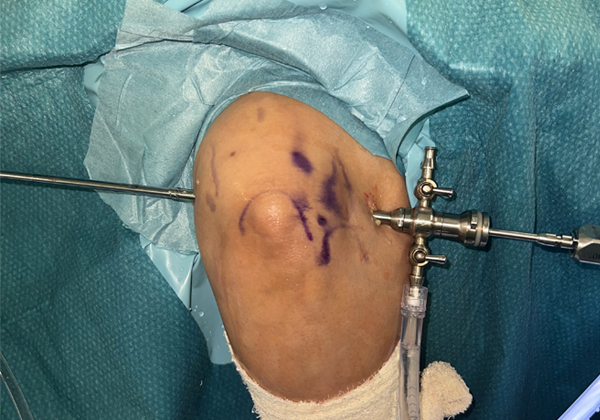Understanding Arthroscopy of the Elbow London: A Small Procedure for Joint Repair
Overview
Do you have pain, stiffness, or limited motion in your elbow?
Elbow arthroscopy, a minimally invasive operation, that might be a solution.
What is Elbow Arthroscopy?
Elbow arthroscopy is a keyhole surgery, which means the surgeon uses a tiny camera and small instruments inserted through several small incisions (portals) to navigate within the elbow joint. It’s like seeing into a room through a keyhole rather than having to open an entire door.
How is this Procedure done?
During the procedure:
- Small incisions: The surgeon makes a few small incisions (each less than 0.4 inch) around your elbow.
- Arthroscope insertion: The arthroscope, a thin, flexible tube with a camera at its tip is inserted through one opening.
- Joint visualization: Sterile fluid is pumped into the joint to inflate it to allow for visualization on a screen.
- Treatment with tiny instruments: Other instruments are inserted through others small cuts to diagnose and treat conditions such as:
- Getting rid of any loose bone or cartilage particles
- Trimming inflamed tissue (synovitis)
- Repairing or removing injured cartilage
- Breaking up scar tissue (adhesions) or tightness (contractures)
Advantages of Elbow Arthroscopy:
- Minimally invasive: – Smaller incisions as compared to traditional open surgery, resulting in:
- Less discomfort and pain
- Reduced stiffness
- Earlier recovery and return to day to day activities
Diagnostic and Therapy Tools
The elbow arthroscopy is performed with the purpose of diagnosis and treatment:
- Diagnostic: To find out the cause of pain, stiffness or restricted movement (such as arthritis, loose fragments or scar tissue).
- Treatment: To treat a number of underlying conditions, including:
- Rheumatoid arthritis
- Osteoarthritis (wear and tear arthritis)
- Lateral epicondylitis (tennis elbow)
- Loose bodies (bones or cartilage fragments)
- Synovitis (joint lining inflammation)
- Contractures (stiffness)
- Osteochondritis dissecans (cartilage lesion)
Remember
Elbow arthroscopy can be an effective surgery for both diagnosis and treatment of a number of elbow joint disorders. Talk to your surgeon about whether it is right for you.

